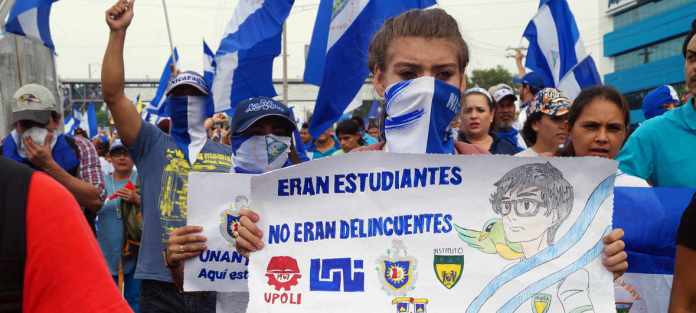The Ortega administration has rejected the latest report presented by the Office of the United Nations High Commissioner for Human Rights (OHCHR), which asserts that repression in Nicaragua continues, in spite of the political dialogue between the government and the Civic Alliance.
The OHCHR report details human rights violations occurring between April and September 2018, when all protest were prohibited by the police, but the United Nations organization also presents the new phases of repression imposed by the de facto state of siege, such as arbitrary detentions and arrests, limiting the right to freedom of movement, and the use of the judicial system as a means of repression against the opposition.
“The period covered in the report (from August 19, 2018 to July 31, 2019) should report on the current situation and not go back in time to events which occurred prior to August 19, 2018,” asserts the Ortega government. “The OHCHR fails to comply with the mandate of the Human Rights Council by insisting on including information on events that occurred in the past,” complains the Ortega administration.
In her address to the Human Rights Council, Michelle Bachelet, the United Nations High Commissioner for Human Rights, said that abuses have continued against activists who opposed social security reforms in the Central American state, more than 100 of whom are still in prison.

“It is a source of concern that, at the time of finalizing the report, my Office received corroborated information on some homicides and attempted homicides that took place between June and July 2019 mostly in the department of Jinotega and in the border area between Honduras and Nicaragua,” Bachelet said in her opening statement.
Freedom of expression had been restricted in various ways too, she added, from the closure of independent media outlets and the retention of their property and equipment, to the imprisonment of journalists for several months.
In addition, leading human rights groups have seen their legal registrations cancelled after being accused of supporting the 2018 protests, the rights chief insisted, while the right to peaceful assembly had also been impeded by the new police requirement for permits to carry out public gatherings.
Bachelet also noted that her Office had verified the arbitrary expulsion of university students critical of the Government and the unfair dismissal of doctors who treated injured people during the protests, as well as professors “not aligned” with the Government.
“To date, the justice system in Nicaragua has not guaranteed accountability for serious human rights violations,” she added, while also noting an agreement by the Government to strengthen citizens’ rights had not been respected.
“The Government considers the negotiations to be over,” said Bachelet.


You must be logged in to post a comment.